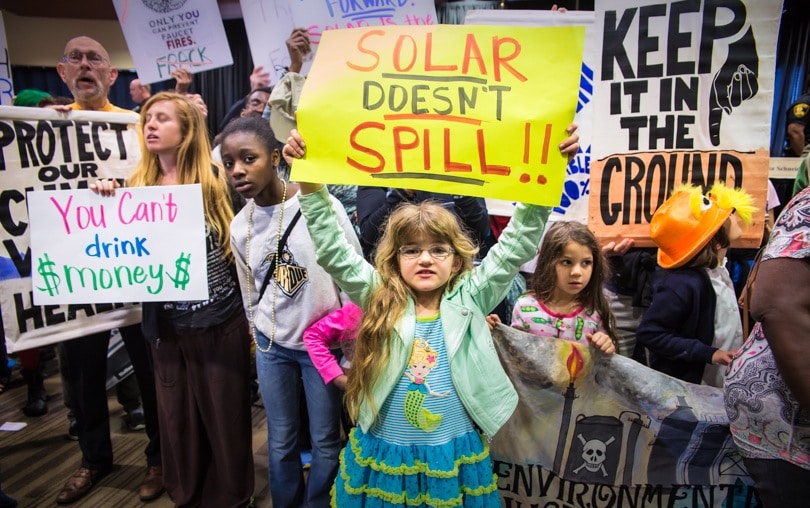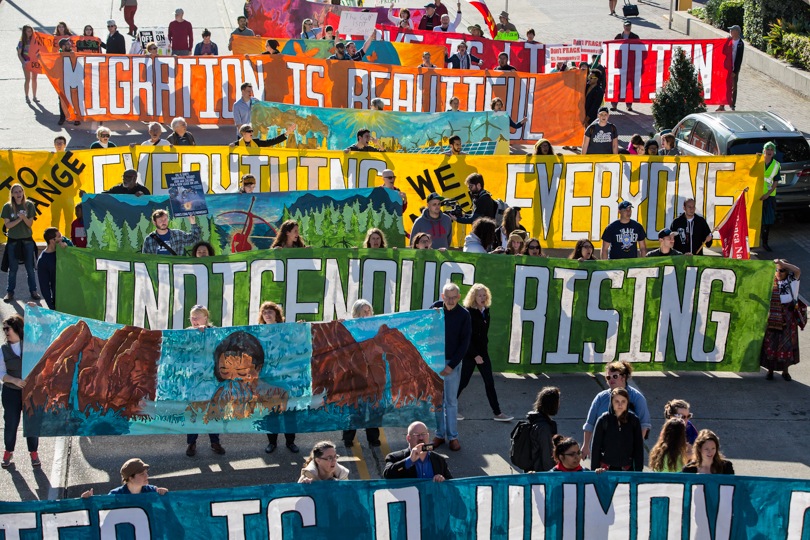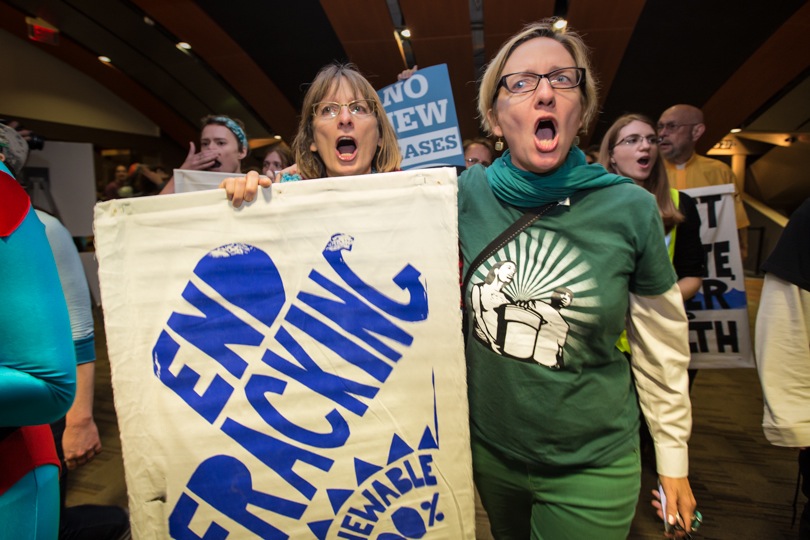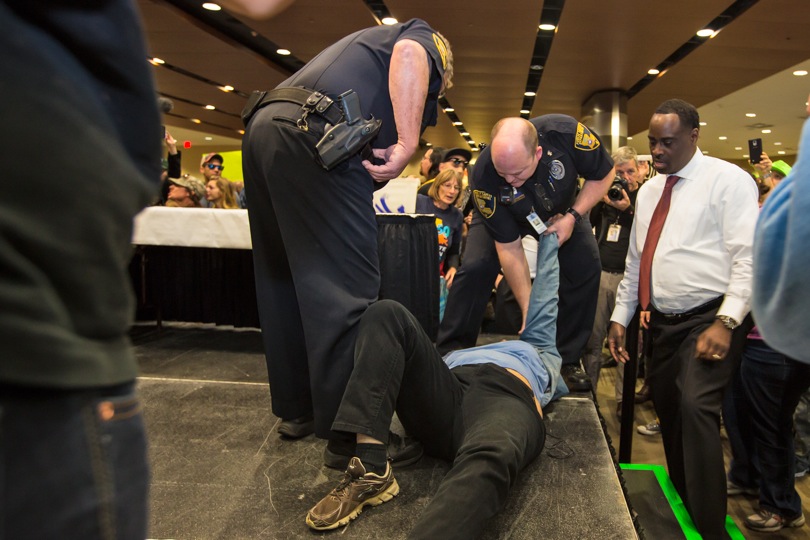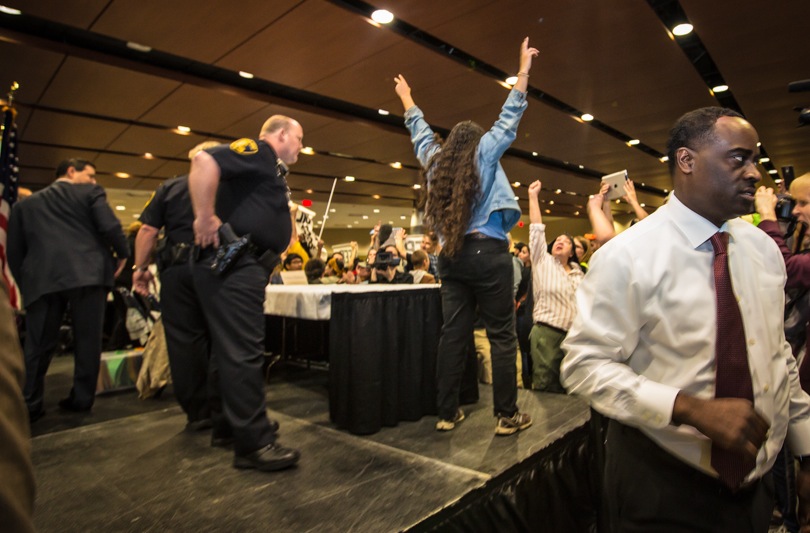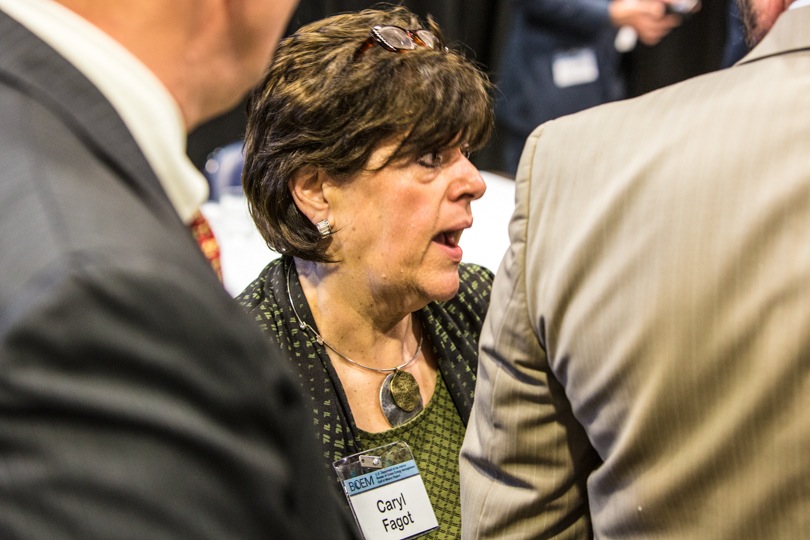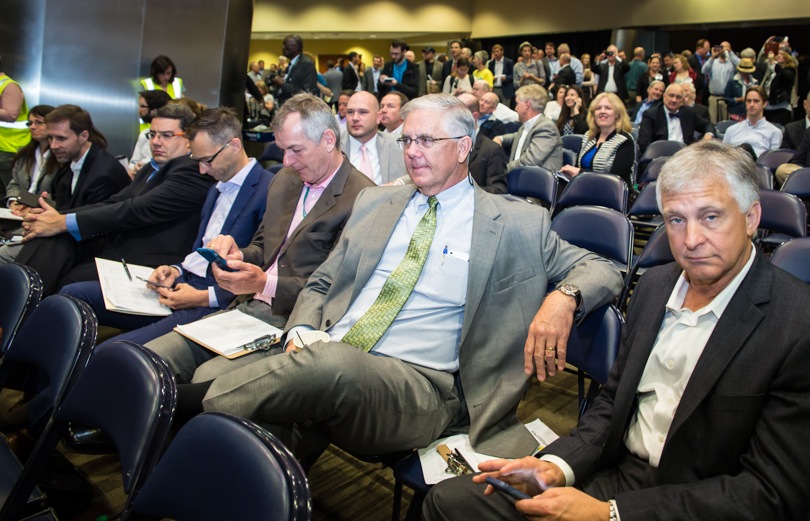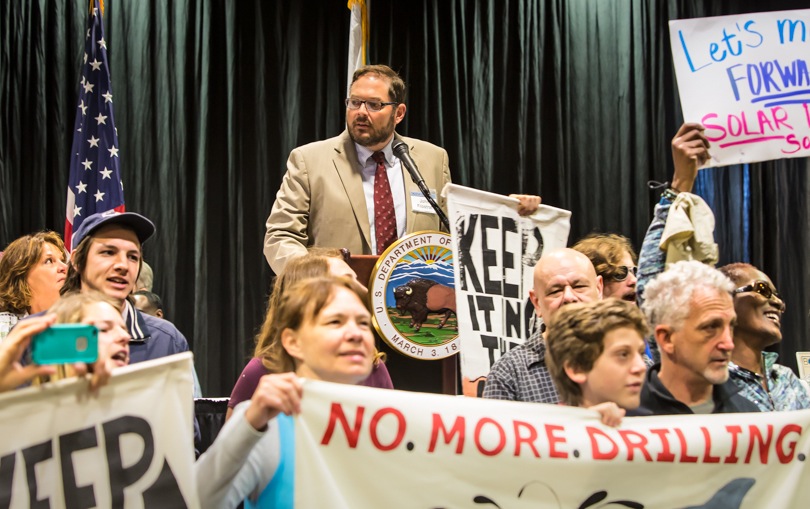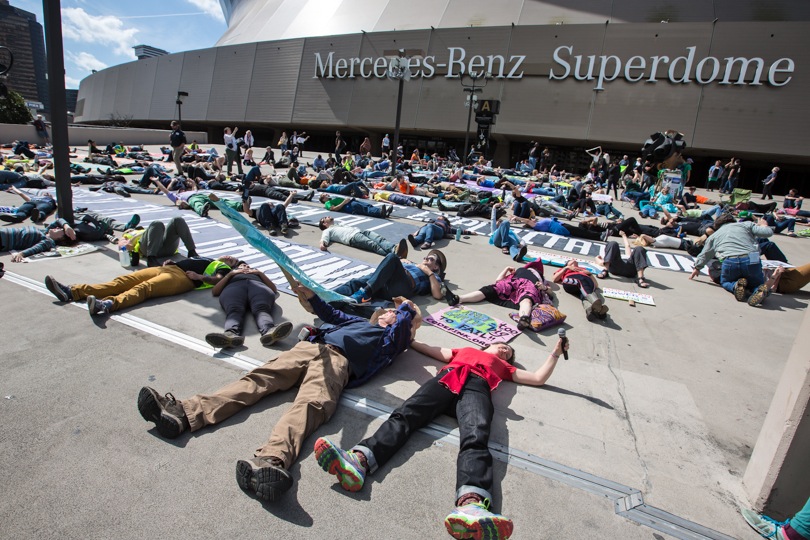Hundreds of Gulf Coast residents and environmentalists from across the country protested against a federal lease sale of 44.3 million acres in the Gulf of Mexico to the oil and gas industry yesterday in New Orleans.
The group marched from Duncan Plaza to the Mercedes-Benz Superdome — where the sale was held — calling for an end to drilling in the Gulf of Mexico and an immediate hiring of a thousand workers to clean up and repair aging oil infrastructure, including rigs, platforms, pipelines and refineries.
They included Gulf Coast residents and local environmental organizations 350 Louisiana, Louisiana Bucket Brigade, Bridge the Gulf and Vanishing Earth. Members of national groups Friends of the Earth, Greenpeace, Sierra Club, Oil Change International, Indigena, Bold Nebraska, Keeper of the Mountains Foundation, the Center for Biological Diversity, Rethink Energy, Tar Sands Blockade and Rainforest Action Network also took part in the protest.
No effort was made to stop the protesters from entering the Superdome or the room where the auction took place. While the protest had been publicized since February on social media, the Bureau of Ocean Energy Management (BOEM) seemed caught off guard.
Protesters march to the Superdome in New Orleans. ©2016 Julie Dermansky
Anne Rolfes, director of the Louisiana Bucket Brigade, leads protesters to the lease sale inside the Superdome. ©2016 Julie Dermansky
The protesters chanted throughout the lease sale, which lasted about an hour and a half. They drowned out the voice of BOEM Gulf of Mexico Regional Director Michael Celata who was calling out the bids and announcing the lease winners.
VIDEO
“We have being saying ‘Yes’ and going along with drilling in the Gulf far too long,” Cherri Foytlin, a Gulf Coast activist, told DeSmog, “Today I said, ‘No.’”
Security personnel tried to remove Foytlin from a platform at the lease sale. When police officers grabbed her, Foytlin went limp, ending up lying on her back. Rather than drag her away, she was permitted to remain on the platform.
Police try to remove Cherri Foytlin from the protest. © 2016 Julie Dermansky
Cherri Foytlin, after being released by the police, returns to where she was standing before they tried to remove her. ©2016 Julie Dermansky
“They could have arrested me,” Foytlin told DeSmog. “But there were too many of us that they would also have to arrest.”
A representative from BOEM asked Foytlin what the group thought they were going to accomplish since their actions were not going to stop the sale. Foytlin explained she was protecting the planet for the sake of her children.
She asked him to “go back to the President and tell him that this is just the beginning. Our numbers are swelling.”
“If this president really wants to be the guy he said he was going to be after Paris, he needs to be proactive and stop the sale of federal land for drilling right now,” Foytlin told DeSmog.
VIDEO
“This is horrible,” BOEM representative Caryl Fagot said to DeSmog. “What do they think they are doing?”
BOEM representative Caryl Fagot reacts to protesters during the lease sale in the Superdome. ©2016 Julie Dermansky
At a March 17 public hearing on the next round of Gulf of Mexico lease sales slated for 2017, Fagot said nothing would stop the March 23 auction and that the place to voice one’s opinion was at one of the BOEM public hearings beforehand, not at the event itself.
The activists disagreed. “This is beautiful,” Bucket Brigade director Anne Rolfes told DeSmog.
Oil and gas industry representatives at the federal lease sale in the Superdome. ©2016 Julie Dermansky
John Filostrat, a BOEM public affairs officer, makes an effort to control the crowd. ©2016 Julie Dermansky
Rolfes testified at BOEM’s hearing, but still had hoped to stop the lease sales. The hundreds of people willing to disrupt the meeting gave her hope. Two years before, only a couple dozen protesters attended the lease sale.
After the sale, a few of the protesters taunted workers who were taking down BOEM’s displays in the Superdome’s hallway. “You should be ashamed,” one of the activists said to them.
“The sneakers you are wearing are made with oil. Your cell phone too,” a worker countered. The worker conceded safety on the oil rigs isn’t what it should be, but told DeSmog he thought the protesters were ignorant.
Twenty-six offshore energy companies submitted 148 bids on 128 blocks for Central Sale 241. No bids were submitted for Eastern Sale 226, according to BOEM’s press release. It was the fewest bids submitted at in auction in the last 20 years.
The protesters held a rally outside the Superdome after the sale. Among them was activist Hilton Kelley, the Goldman Environmental Prize winner who has fought to keep pollution at bay in the African-American West Side neighborhood of Port Arthur.
“The people who live on the Gulf Coast have suffered enough because of BP,” he told DeSmog.
“Though we didn’t stop the sale, our voices were heard,” Kelley said, describing the protest as “righteous.”
Protesters pose for a group photo as a helicopter passes over them. ©2016 Julie Dermansky
Lead photo credit: Children take part in a protest against new federal lease sales in the Gulf of Mexico. ©2016 Julie Dermansky
Subscribe to our newsletter
Stay up to date with DeSmog news and alerts


